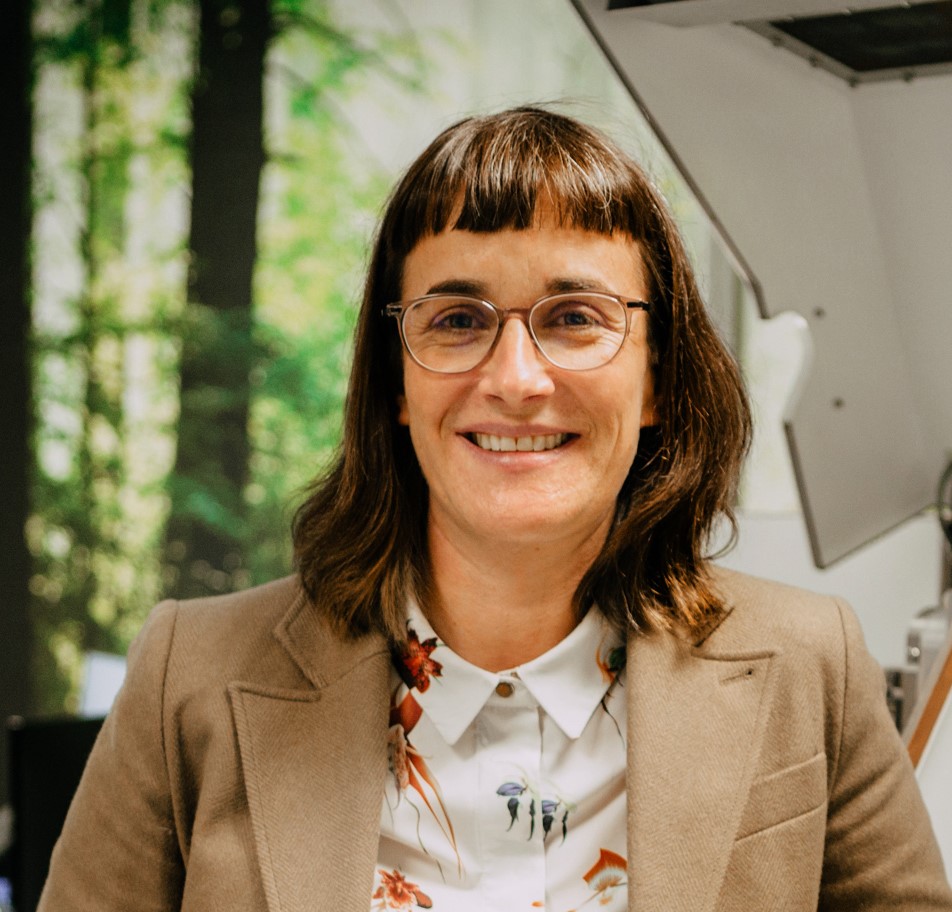Robyn Pickering, PhD
Senior Lecturer
Dept of Geological Sciences, University of Cape Town
Co-Director
Human Evolution Research Institute, University of Cape Town

Biography
I studied up to my masters at Wits, majoring in geology and archaeology and doing Hons in palaeontology and geology. I started working in the Cradle over 20 years ago as my Hons project and have not changed research direction much since. I did my PhD in developing the U-Pb dating technique and applied this to the caves in the Cradle, providing the first ever direct ages for this region and its hominin fossils. I spent 6 years as a post doc in Australia and have been a lecturer at UCT since 2016. I am the leader of the Quaternary Terrestrial Environments group and working with this team is the best part of my job! I also teach introductory geology, palaeontology and field skills to our first years which is fun and inspiring. Away from work, I enjoy hanging out with my kiddos, baking, sewing and listening to podcasts (ideally all at once!).
Disciplines
Geochronology, human evolution, cave geology, speleothem palaeoclimatology, carbonate petrography, U-series dating, isotope technique development and capacity building, improving field training experiences for women, raising awareness around neocolonialsim in palaeoscience research and decolonizing research into human evolution.
Fields of study
The Kalkkop meteorite impact crater, situated within the semi-arid Nama-Karoo biome, has long been the subject of investigation. Work in the 1990s revealed that the Kalkkop crater hosted a lake in the past, and these palaeolake deposits have shown great promise as archives of environmental and climatic change. Three cores drilled in the 1990s described the limestone deposits as fine-grained, laminated and interspersed with abundant fossil material (Koeberl et al., 1994; Reimold et al., 1998). These early investigations, followed by a recent study in 2016 (Mthembi et al., 2016), suggested that during the period of deposition the region experienced alternating wetter and drier climates. However, previous environmental reconstruction was based on a limited number of samples over the length of the core (~90m) and a sparse chronology. The age of the palaeolake deposits remains unresolved, with early work using U-Th on the lacustrine carbonates to give an age of around 250 ka vs a modelling study using the rates of erosion of the crater itself to suggest an age of 6.3 ± 1.6 Ma, i.e. late Miocene (Mthembi et al., 2016). The original cores are severely disintegrated due to poor handling and storage post-retrieval. We drilled new cores in early 2019, supported by the African Origins Platform, producing an 87 m long core from the centre of the crater. Since then we have conducted a major research project on the cores and surface deposits, supported generously by GENUS in the form of an operations grant and two post doctoral fellowships. This work has yielded detailed sedimentological and geochemical data for the long core and a growing data set of diatom, pollen, charcoal and dung spores analysis, at a 7cm resolution across the 87m. A great deal of effort went into resolving the chronology through more U-Th dating. This has been incredibly unsuccessful, despite early work replicating the original 250 ka age. The lake sediments contain too much detrial material to make a detailed U-Th chronology viable. Instead we have began work on a optically stimulated luminescence chronology, with encouraging early results on both the quartz and feldspar fractions from preliminary samples throughout the core.
Awards and recognition
- 2025-2027: Elected as President for the EGU Biogeoscience Division
- 2023: Nominated for European Geological Union (EGU) EDI Award
- 2019: Promoted to Senior Lecturer
- 2018: UCT VC 2030 Leadership Program (2 or 3 award/year)
- 2017: National Science and Technology Forum Emerging Researcher Award (2 awards/year)
- 2016: Elected as a Fellow of the Geological Society of South Africa
- 2016: NRF Prestigious Young Researcher rating, University of Cape Town
- 2016-2018: Merit Award, Science Faculty, University of Cape Town
- 2013: Dean’s Award for Excellence in Research, University of Melbourne
